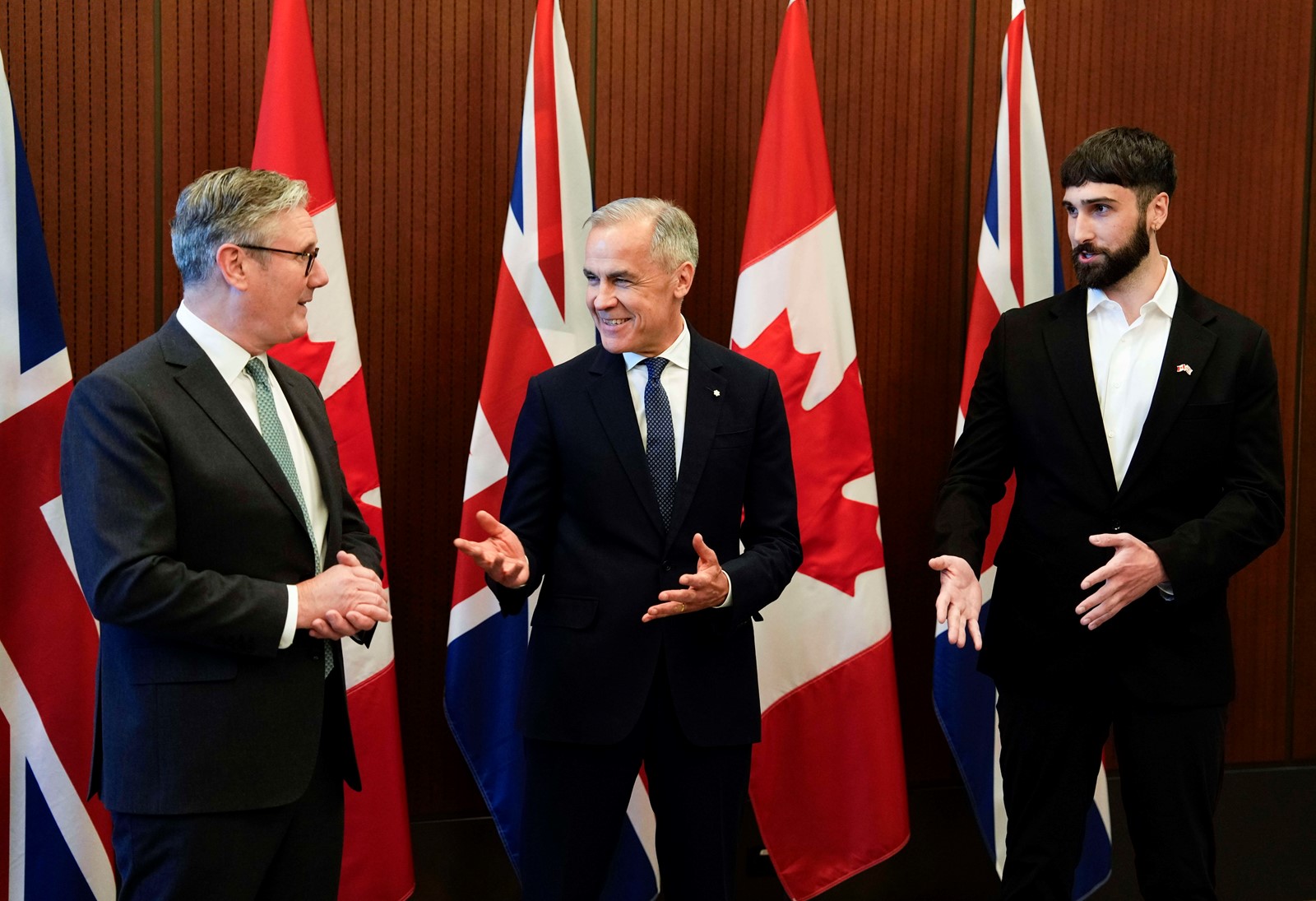
KANANASKIS, Alberta — Leaders of some of the world’s biggest economic are arriving in the Canadian Rockies on Sunday for a Group of Seven summit, overshadowed by an escalating conflict between Israel and Iran and U.S. President Donald Trump’s unresolved trade war with allies and rivals alike.
Israel’s strikes on Iran and Tehran’s retaliation, which appeared to catch many world leaders unawares, is the latest sign of a more volatile world.
Trump in recent days vetoed an Israeli plan to kill Iran’s Supreme Leader Ayatollah Ali Khamenei, a U.S. official told The Associated Press, in an indication of how far Israel was prepared to go.
British Prime Minister Keir Starmer said he had discussed efforts to deescalate the crisis with Trump and Israeli Prime Minister Benjamin Netanyahu, as well as other world leaders and said he expected “intense discussions” would continue at the summit.
Trump is a wild card
As summit host, Canadian Prime Minister Mark Carney has decided to abandon the annual practice of issuing a joint statement, or communique, at the end of the meeting.
With other leaders wanting to talk to Trump in an effort to talk him out of imposing tariffs, the summit risks being a series of bilateral conversations rather than a show of unity.
Trump is the summit wild card. Looming over the meeting are his inflammatory threats to make Canada the 51st state and take over Greenland. French President Emmanuel Macron visited Greenland on Sunday for a highly symbolic stop on his way to Canada, meeting the Arctic territory’s leader and Denmark’s prime minister aboard a Danish helicopter carrier.
Macron reiterated his criticism of Trump’s intention to take control of the territory.
“I don’t think that’s something to be done between allies,” he said.
Macron, who is one of the very few leaders to have known Trump during his first term, was the first European leader to visit the White House after Trump took office, emerging unscathed from the Oval Office encounter.
But despite the two leaders’ sporadic bromance, Macron’s approach to Trump has failed to bear major results, with France caught up in the president’s planned tariffs on the European Union. Nor did it bring any U.S. security guarantees for Ukraine despite Macron’s efforts, together with Starmer, to build a coalition of nations that could deploy forces after any ceasefire with Russia, with the hope it would convince the Trump administration to provide backup.
‘tends to be a bully’
Leaders who are not part of the G7 but have been invited to the summit by Carney include the heads of state of India, Ukraine, Brazil, South Africa, South Korea, Australia, Mexico and the United Arab Emirates. Avoiding tariffs will continue to be top of mind.
“Leaders, and there are some new ones coming, will want to meet Donald Trump,” Boehm said. “Trump doesn’t like the big round table as much he likes the one-on-one.”
Bilateral meetings with the American president can be fraught as Trump has used them to try to intimidate the leaders of Ukraine and South Africa.
Former Canadian Prime Minister Jean Chrétien told a panel this week that if Trump does act out, leaders should ignore him and remain calm like Carney did in his recent Oval Office meeting.
“He tends to be a bully,” Chrétien said. “If Trump has decided to make a show to be in the news, he will do something crazy. Let him do it and keep talking normally.”
Last month Britain and the U.S. announced they had struck a trade deal that will slash American tariffs on U.K. autos, steel and aluminum. It has yet to take effect, however, though British officials say they are not concerned the Trump administration might go back on its word.


 PREVIOUS ARTICLE
PREVIOUS ARTICLE
